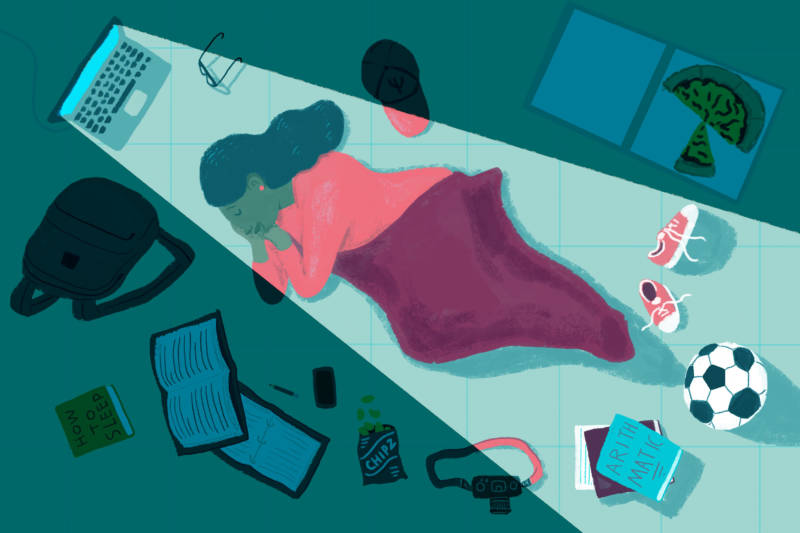And they found some pretty interesting stuff:
- Students aren't as sleep-deprived as we might think. The overall average was 7 hours and 3 minutes during the week, and 7 hours 38 minutes on the weekends.
- The tougher the school, the later the students go to bed. There was a strong correlation between rankings in U.S. News & World Report and bedtime. At Columbia, Stanford, MIT, Princeton and Brown, the midnight oil burns past 1 a.m. But these students don't sleep less over all — they're just night owls. That trait, in turn, has been linked to general intelligence.
- Women go to bed earlier, on average, and wake up earlier than men, sleeping more overall. On weekends, for example, the women turned in at 1 a.m. and the men at 1:43 a.m. There's been some research recently showing that, for biological reasons, women actually need more sleep than men.
- The nation's military academies, not surprisingly, are hauling students out of bed the earliest. Accordingly, students at West Point, the Naval Academy, the Coast Guard Academy and the Air Force Academy are the most sleep-deprived of the schools studied.
- The city that never sleeps is just that. Columbia University in Manhattan topped the rankings for latest bedtime and third-least sleep.
At first blush, the results of this study should be reassuring.
Seven hours of sleep a night on weekdays, and a little extra on weekends, is within the recommended range for young and healthy adults.
"Our data was consistent with what researchers have found in academic studies — that students are in bed, on average, seven to eight hours per weeknight," says Brian Wilt, Jawbone's head of data science and analytics. But he takes a glass-half-empty view: "Framed another way, they got less than seven hours of sleep on 46.2 percent of nights. So I think it's definitely a problem."
Despite all the data, though, this study doesn't necessarily capture the full sleep picture among college students.
Students who buy and wear fitness trackers are presumably more concerned with their health than others, and they must have a little bit of disposable income as well. The students who are getting dangerously little sleep are more likely to have other issues in addition to their studies, such as high levels of stress, health and mental health problems, second and third jobs and family responsibilities. They wouldn't show up in this study at all.
Copyright 2016 NPR. To see more, visit http://www.npr.org/.
9(MDAxOTAwOTE4MDEyMTkxMDAzNjczZDljZA004))



9(MDAxOTAwOTE4MDEyMTkxMDAzNjczZDljZA004))